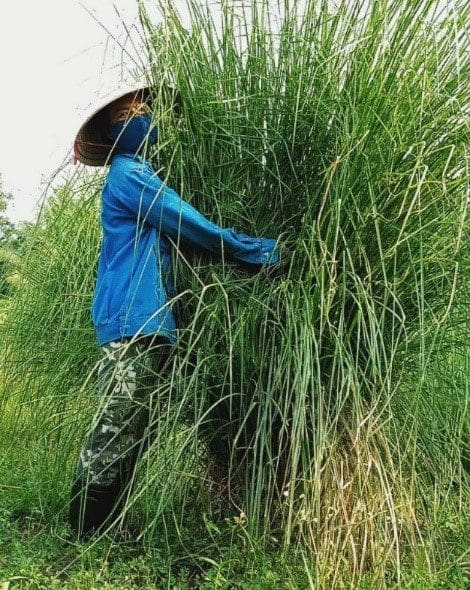The Vetiver Grass Technology (VGT) contribution
Climate instability and pollution have created considerable environmental, economic, and financial difficulties for tropical countries to the point that some are facing a very uncertain future, unless their economies begin transitioning to towards Sustainable Survival (SS).
SS is defined as the coordinated and simultaneous management of water, air, soil, biodiversity, CO2 emissions/absorption and all related resources, to maximise the resultant economic and social welfare in an equitable and harmonious manner without compromising the sustainability of vital ecosystems whilst they are all in a constant state of flux. Although any one of them could become a limiting factor, the most critical are the natural capital assets, water, soil and CO2 absorption.
Managing SS demands a systems approach the complexity of which requires public participation and community inclusion guided by government policy, because it is only within the natural complexity of community that problems of this magnitude can be addressed, solved systemically in real time and introduced into the cultural fabric of the nation.
Fortunately tropical countries, which employ Vetiver could be on the forefront of successfully addressing this SS management challenge if they were to expand its coverage. Their rural communities and businesses have already recognized the vital need to conserve the quality and quantity of soil, and water, and via Vetiver they have shown and ability to contribute to their nations’ environmental and food security. Unfortunately this service has still to receive the recognition it deserves.

Climate instability and pollution have changed this status quo and a sense of urgency to survive now reigns. The catalyst for this change is Net Zero, i.e. the harmonization of CO2 emissions/absorption for mitigating climate change. The importance of Net Zero is that it dictates the scale of all the components of the economy. It is imperative therefore that this environmental/climate management conundrum be solved as soon as possible. This is a global problem.
Net Zero requires that a nation’s CO2 emissions are no greater than the CO2 absorption capacity of its natural capital assets, in particular plants and soil. Vetiver Grass Technology (VGT) can contribute to both plant and soil CO2 absorption capacity. It can simultaneously absorb CO2, and by conserving a nation’s soil assets for food production, conserve the soil’s CO2 absorption capacity.
In sum, tropical countries that already employ Vetiver’s unique combination of characteristics and capabilities (that no other single plant has) has the opportunity, with rural public participation as a business, to demonstrate a process to the world, which could help transition their economies towards Sustainable Survival.
A tropical government wishing to take advantage of this opportunity only needs to accelerate the application and harmonization of its well-established private sector community based rural Sustainable Survival business practices. This can be achieved by devolving more power to communities, accompanied with the correct financial incentives.
Geoffrey Mathews